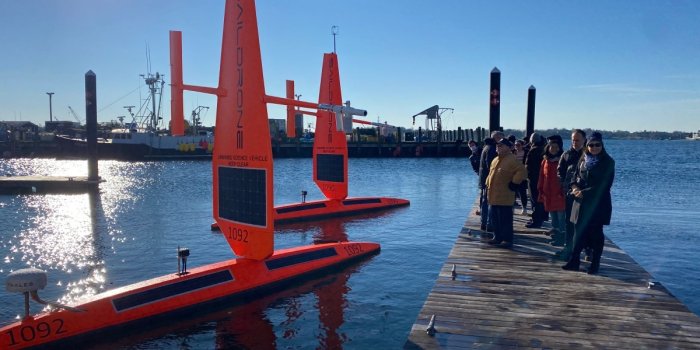A group of ocean drones, funded in part by a $1 million grant from Google.org, have been deployed from Rhode Island’s Newport to build the largest-ever set of wintertime weather and carbon data in the Gulf Stream.
For the next six months, three Saildrone uncrewed surface vehicles (USVs) will sail through North Atlantic’s swiftest current to collect critical, in situ data that will help scientists improve weather forecasts and carbon accounting.
The mission, which is being led by scientists at the European Centre for Medium-Range Weather Forecasts (ECMWF) and the University of Rhode Island (URI), won a funding grant of over $1 million from Google.org, the philanthropic arm of Google, earlier this year.
Stressing that his company has been working tirelessly to measure climate quality data from Earth’s most remote oceans since its first mission in the Arctic in 2015, Saildrone founder and CEO, Richard Jenkins, says:
For the next six months, three Saildrone uncrewed surface vehicles (USVs) will sail through North Atlantic’s swiftest current to collect critical, in situ data that will help scientists improve weather forecasts and carbon accounting.
The mission, which is being led by scientists at the European Centre for Medium-Range Weather Forecasts (ECMWF) and the University of Rhode Island (URI), won a funding grant of over $1 million from Google.org, the philanthropic arm of Google, earlier this year.
Stressing that his company has been working tirelessly to measure climate quality data from Earth’s most remote oceans since its first mission in the Arctic in 2015, Saildrone founder and CEO, Richard Jenkins, says:
Continue reading: https://dronedj.com/2021/12/14/ocean-drones-carbon-data-gulf-stream/We are delighted to be collaborating with Google on this amazing project that will dramatically improve our understanding of critical climate processes. We believe this data will enable more accurate predictions of our future, which will in turn help guide global climate policy and decision-making.

